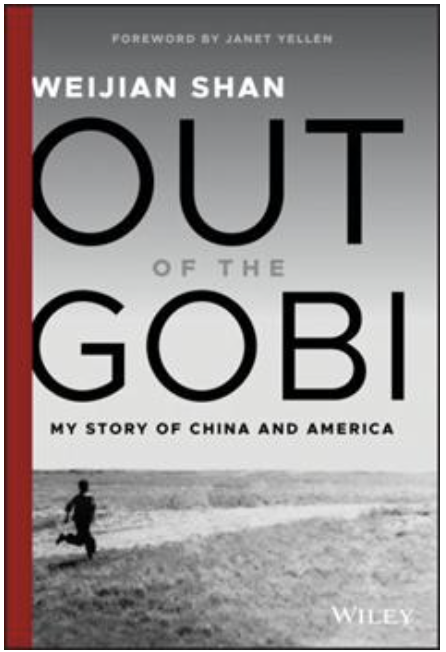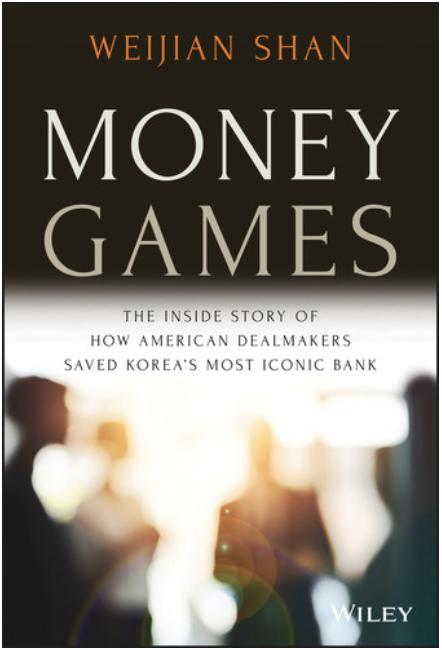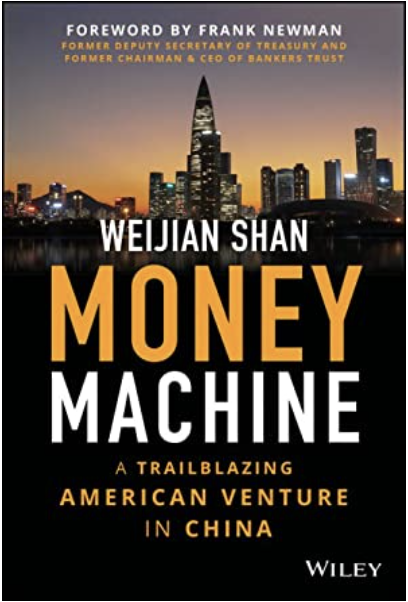
Book Review: 'Out of Gobi' & 'Money Games' & 'Money Machine'



All three books are written by the Chinese economist and investor, Weijian Shan. Money Games and Money Machine gave a first-hand narrative about the delicate and exasperating process of acquiring and transforming the Korean First Bank during Asian Financial Crisis in 1999, and the Chinese Shenzhen Development Bank in 2002 right after China joined the WTO. Shan took a lead on those unprecedented deals when he worked as a co-managing partner for the U.S. based private equity firm NewBridge Capital. Those deals were groundbreaking as it was the first time for those two Asian countries to allow foreign companies to control their national banks. As one can imagine, pioneering works often come hand-in-hand with challenges, frustration, creativity and patience. The deals involved multiple parties, NewBridge, government, bank employees and competitors. It’s not easy to bring people only seeking the best benefits for themselves together and make an agreement, but still the challenges came across the year-long negotiations were beyond my imagination. As I read along the books, there were many moments I could empathize with the author and I would have given up if I were him, but ultimately he managed it with tenacity, creativity and some luck.
I was really impressed by the perseverance and proactiveness demonstrated by Shan from the books Money Games and Money Machine. Then I read his biography book ‘Out of Gobi’ and started to understand where the personality comes from. He was born in Beijing, China and grew up in the midst of Culture Revolution, his education discontinued after primary school and he was dispatched to the Gobi Desert in Inner Mongolia for 6 years, where the living condition was harsh and he was put into intensive labor works. He overcome lots of hurdles and made extreme efforts for every chance he got and finally returned to Beijing and enrolled in a university, later he moved to U.S. as part of the first cohort of mainland Chinese students studying abroad after the Cultural Revolution. He was advised by Janet Yellen, the incumbent U.S. secretary of treasury, when studying economics PhD in UC. Berkeley. He once commented that after living in Gobi for years, nothing else would ever make him feel as much challenged.
Besides all the intriguing details of high-stake dealmaking, the other thing from the stories that interests me the most is how Shan’s team reformed the banks after acquiring them. Nowadays data science is not a new term in the “Big Data” era, thanks to the rapid development of computational capability and data assets, almost all the industries are working on or pushing for data-driven business decisions. However, the idea was definitely a cutting-edge two decades ago, and according to the books, as part of the reformation to improve the loan quality, the bank established a credit center where they would analyze and quantify the payment patterns of existing customers, which then was used as a reference or benchmark to determine to approve or decline a new loan request. This is what the modern banks are doing now, of course with more advanced technology, but still it’s impressive to learn that it was already implemented at that time.
I enjoyed reading those books because Shan and I have shared culture background and the stories have somewhat overlap with my current works. In addition, the timing of those dealmaking is so special (Asian Financial Crisis, China joined WTO) that we would not witness another deals like those happen again, at least in the foreseeable future. For anyone who has ever wondered how private equity investors strike bargains, turn around business and create immense value, those are great books.
